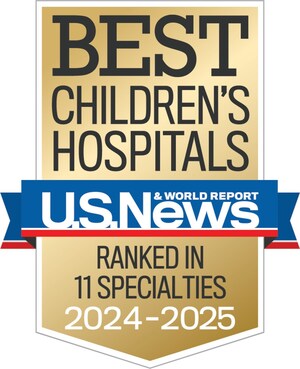"Image Gently" Offers Guidance, Tips on Radiation Exposure
CINCINNATI, Oct. 2, 2012 /PRNewswire-USNewswire/ -- With millions of X-rays performed on children every year, kids are more likely to receive X-rays than any other type of imaging exam. A new education campaign seeks to equip parents with the knowledge they need to make informed decisions about their kids and X-rays.
(Logo: http://photos.prnewswire.com/prnh/20110406/MM79025LOGO)
Through a series of online teaching materials aimed at parents and medical professionals, Image Gently's "Back to Basics" campaign promotes radiation protection through the use of kid-sized imaging and other measures.
"There's no doubt that X-rays improve and save lives every day," said Dr. Marilyn Goske, founder and chair of Image Gently, which is supported in part by Cincinnati Children's Hospital Medical Center, where Goske is a staff radiologist. "But parents need to know what questions to ask when their kids are facing the possibility of medical imaging tests."
Image Gently is an international program of the Alliance for Radiation Safety in Pediatric Imaging. The program brings together more than 70 organizations representing some 800,000 imaging specialists in pediatrics, radiology, physics and radiology technology.
Special online tools on the Image Gently Web site offer important resources for parents, including a downloadable wallet-size card to help parents track their children's X-ray exposure.
"Just as you keep a record of your child's immunizations, we strongly recommend recording the name and date of your child's test and where the study was performed," urged Dr. Goske. "Kids are more sensitive to radiation from imaging than adults, and cumulative radiation exposure to their smaller, developing bodies could have adverse effects over time."
Tips and Guidelines for Parents
There are ways to make sure your child is exposed to the lowest amount of radiation possible during an x-ray test. The Image Gently program suggests the following:
- Take an x-ray when there is a clear medical benefit
- Use the lowest amount of radiation based on size of the child to get pictures that may show the doctor the problem
- X-ray only the area needed
- Shield patients when possible
- Repeat images only when necessary
Be an advocate for your child and ask these questions of your doctor:
- What is the name of the test you would like to do on my child?
- Does the test involve ionizing radiation?
- How will having this exam improve my child's health care?
- Are there alternatives that do not use radiation which are equally as good?
- Will my child receive a "kid-size" radiation dose?
- Is the technologist performing the scan certified by ARRT (American Registry of Radiologic Technologists)?
- Is this facility accredited by the American College of Radiology (ACR-accredited)?
"As parents, we want to do what's best for our children," said Dr. Goske. "We don't want to stop treatment, but we want to make sure that only tests that need to be done are performed. And if the test is performed, it should be performed at the lowest dose that still provides enough information. The educational material on our Web site, www.imagegently.org, can inform and empower parents."
For more information, visit the parent resources page on the Image Gently Web site.
SOURCE Cincinnati Children's Hospital Medical Center
WANT YOUR COMPANY'S NEWS FEATURED ON PRNEWSWIRE.COM?
Newsrooms &
Influencers
Digital Media
Outlets
Journalists
Opted In






Share this article